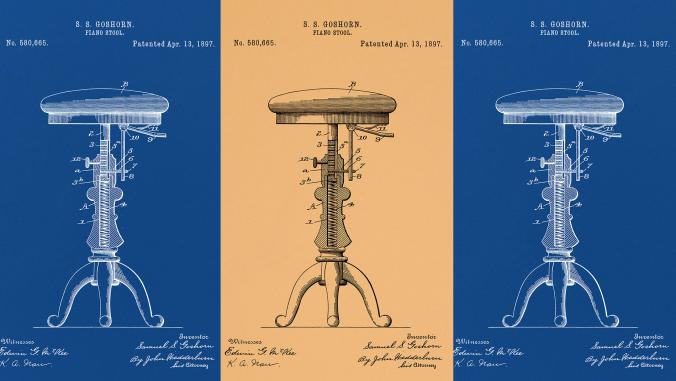Why full Scope 3 reporting may not be right for every company
<p>There are some who believe that companies should be expected to report on all 15 categories of Scope 3 emissions. Kathrin Winkler believes that restraint and judgment need to be exercised in reporting. Here's why.</p>

[Author's Note -- Warning: Possible political incorrectness ahead.]
We believe in the importance of considering Scope 3 emissions.*
EMC was a sponsor of the WRI/WBCSD Scope 3 work. We have been reporting on emissions from business travel for six years, we have been collecting and examining emissions data from Tier 1 suppliers for three years, and we have been calculating emissions from the electricity to run our products for two years (and estimate it to be on the order of 8 times our operational emissions including losses from power and cooling).
We even made a conscious decision to increase our Scope 2 emissions from electricity to power a hybrid cooling system for our environmental chambers because of the much bigger reduction in the Scope 3 emissions from the production of LN2. It doesn't help our metrics, but it's the right thing to do.
We believe in the importance of considering Scope 3 emissions.
To a point.
Recently, I attended the 2012 Climate Leadership Conference in Fort Lauderdale. Scope 3 was a common subject on panels and in the hallway. In fact, the very first morning I got into a debate with a very dear friend over whether companies should be expected to report on all 15 categories of Scope 3.
He was adamant they should report on them all (14 anyway, if they don't have franchises). I was -- am -- equally adamant that I would be remiss in my duties to EMC if I were to divert money, people and time to reporting in non-material categories over which we have minimal influence; scarce resources that could be put toward driving action to reduce emissions. I don't want to impugn his motives -- he's someone for whom I have great respect. But he is looking at it from the point of view of a consultant with one of the Big Four (five?), which is about nothing if it isn't about measuring and reporting.
The more I thought about it, the more I realized that for someone in a job that is executed almost entirely through influence rather than authority (i.e., me), perhaps the most precious resource that this takes is social capital. Virtually every category of Scope 3 requires data and support from other organizations. Part of my job is to determine whether it's really worth the opportunity cost of putting every category of reporting ahead of using my and my teammates' influence capital to create other systemic changes.
* For those not steeped in greenhouse gas emissions accounting, the key definitions for the scopes are: Scope 1 is direct emissions from your operations. Scope 2 is indirect emissions from the grid electricity that your operation is consuming. Scope 3 is indirect emisisons from everything else related to your business. The recently published specs delineate 15 categories of Scope 3, including emissions from the supply chain, production of purchased capital equipment, employee commuting, use of logistics services, etc. For more information, see the GHG Protocol.
Of course, for some categories it absolutely is worth it. But not for all. Or at least, not as fully as the spec requires. After the conference, I attended a partial workshop on the categories. Some of what I learned surprised me and, frankly, reinforced my belief that we need to exercise restraint and judgment when reporting Scope 3.
Take emissions from upstream products and services. Clearly, it makes sense to try to quantify the upstream impacts from our products. But this is also supposed to include the Scope 1 and Scope 2 emissions attributable to consulting services that we use. Aside from the cost of tracking down every consultant across a global company, and getting those numbers allocated in a consistent way from their employers, it ignores their travel which is their Scope 3 and which their employers freely admit is the lion's share of their impact. Given that we have many fewer consultants than employees, and we know our downstream emissions from product in use is many times our operational admissions, it's a pretty reasonable guess that the upstram emissions from our consultants wiould be small, unlike the cost of actually calculating it.
Speaking of product-in-use, it turns out my calculation for annual emissions from all of our installed base isn't what the spec wants. Rather, it requires the total lifetime emissions from all product sold in a year. Now, I did not participate in the discussions, and I can see why that might be the better metric. It certainly gives the long view of the downstream impact of the business. On the other hand, it requires some additional numbers that are real SWAGs, to wit the average length of time the product will run, which for highly configurable systems has huge variability. And it doesn't really take into account long term changes in energy sources (for which we can only hope). Anyway, right or wrong, or both, I'm bummed because we have some serious re-calculation to do.
I still have plenty to think about. Capital goods for new purchases? My gut says small potatoes compared to product-related emissions. Can I go with my gut? I'm afraid that by the time we calculate unequivocally that it's immaterial, we'll already have expended significant effort. In any case, I can say with confidence that it's not a high priority for us for this year -- not as high as categories over which we have much greater influence (e.g., upstream supply chain or logisitics).
It sounds like I'm bitching, and maybe I am. Not against the intent of Scope 3, mind you, or the rationale behind the spec. But it's by no means a given that a full-on embracing of reporting every single category of Scope 3 is the right thing to do for every company.
Please, please, please -- let's not let the reporting tail wag the emissions reduction dog!
This article originally appeared on Kathrin Winkler's blog.
Photo of report via Shutterstock.com.





